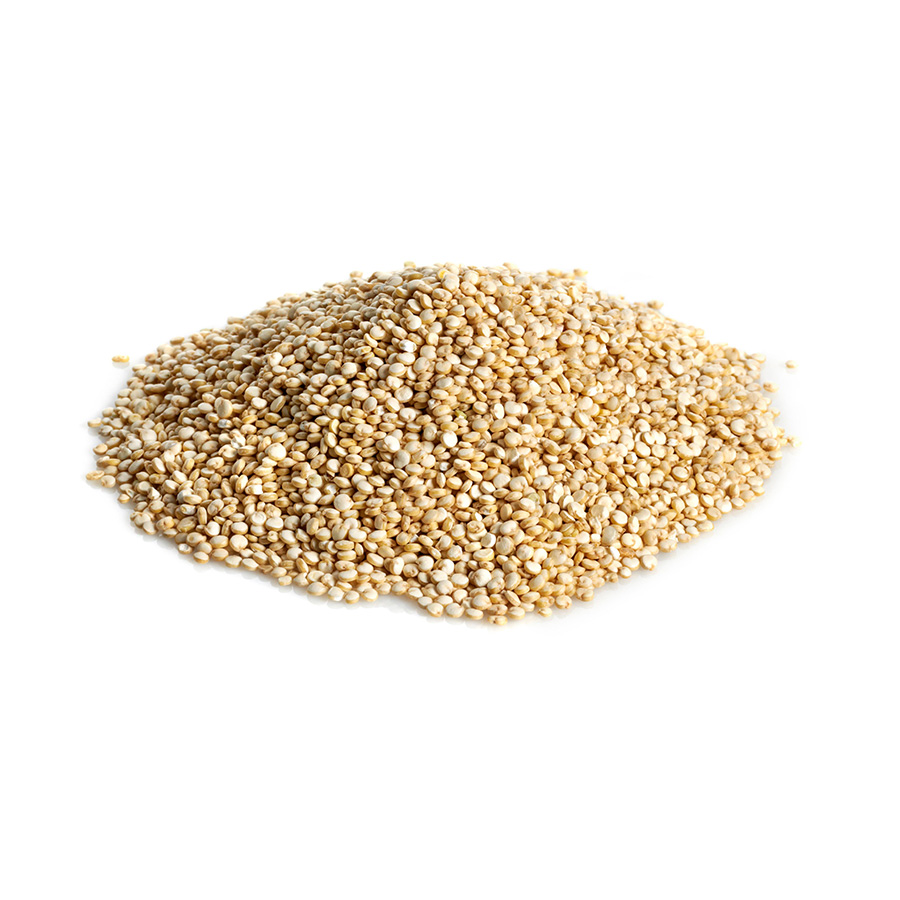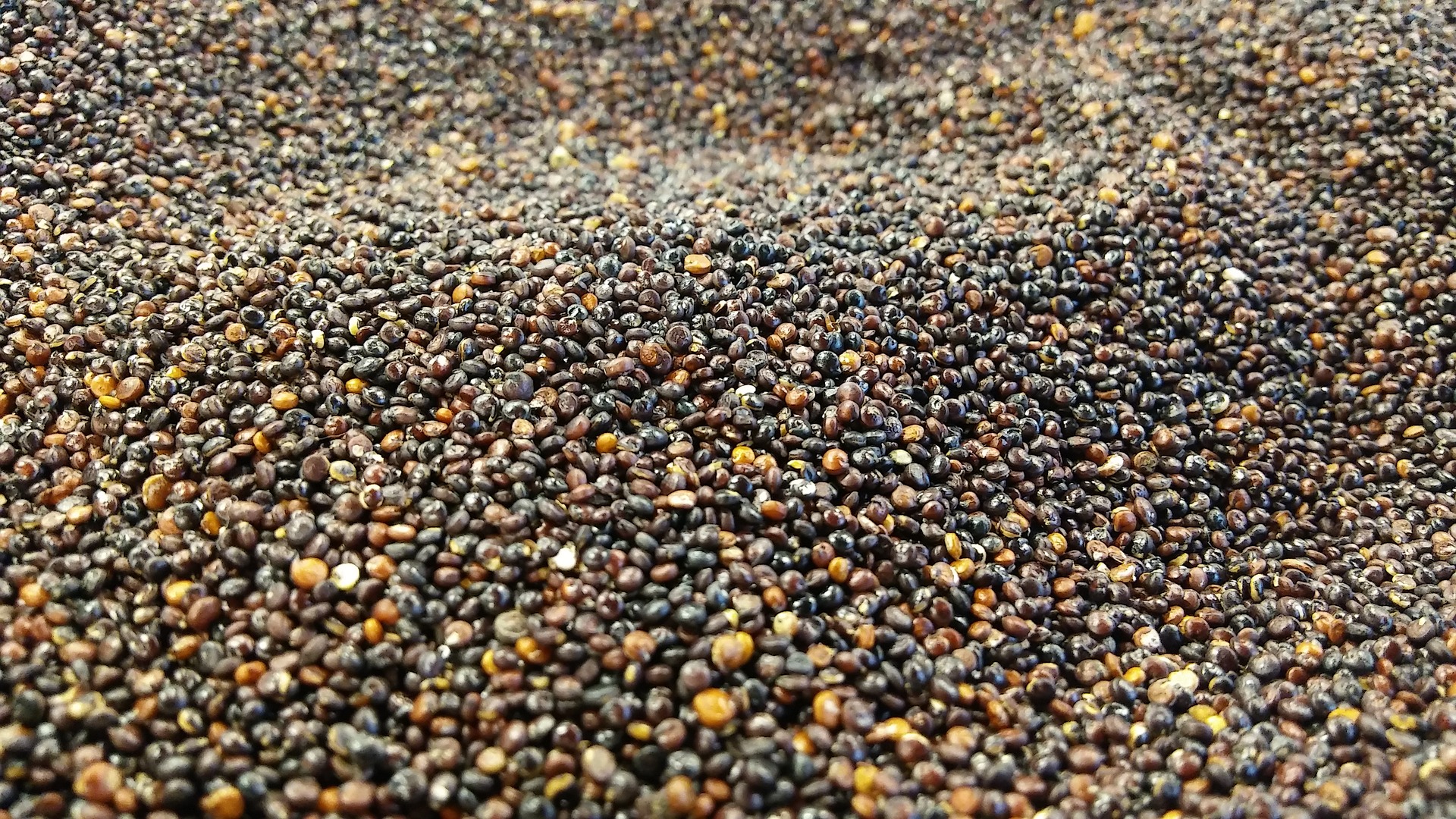Quinoa is the common name for Chenopodium quinoa, a flowering plant in the amaranth family Amaranthaceae. It is a herbaceous annual plant grown as a grain crop primarily for its edible seeds.
Raw, uncooked quinoa is 13% water, 64% carbohydrates, 14% protein and 6% fat. Nutritional evaluations indicate that a 100 g (3.5 oz) serving of raw quinoa is a rich source (20% or higher of the Daily Value, DV) of protein, dietary fiber, several B vitamins and dietary minerals.
After cooking, which is the typical preparation for eating, quinoa is 72% water, 21% carbohydrates, 4% protein and 2% fat and its nutrient contents are collectively and substantially reduced. In a 100 g (3.5 oz) serving, cooked quinoa provides 120 calories and is an excellent source of manganese and phosphorus (30% and 22% DV, respectively), and a moderate source (10-19% DV) of dietary fiber, folate, and the dietary minerals, iron, zinc and magnesium.
Quinoa is gluten-free and considered easy to digest.







